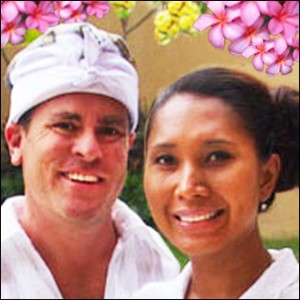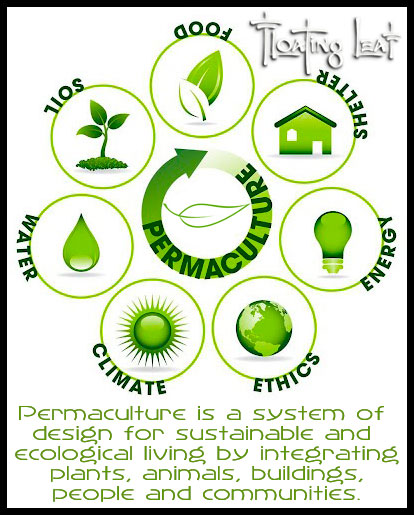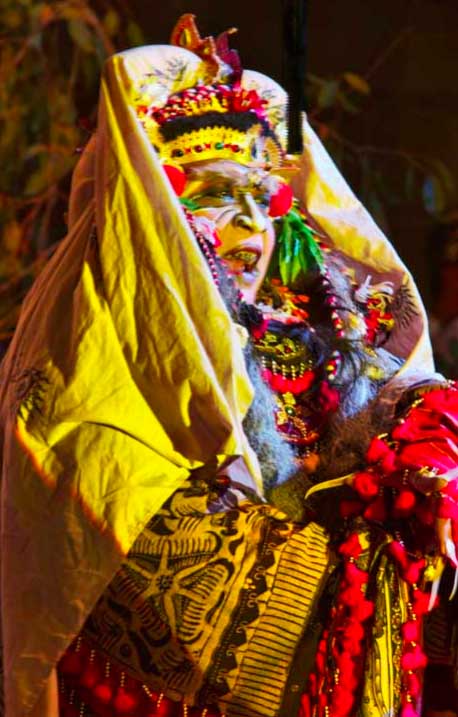We are thrilled and honored to be selected by one of the leading voices in sustainable tourism, Spotlight on Sustainable Tourism (SOST) to be featured in their Green Showcase. SOST and their media partner The Responsible Tourism Awards selected Floating Leaf because “it embodies the values and core principles of sustainability”. We salute all the important work they do encourage the travel and tourism industry to adopt sustainable business practices. The article is below and for the original, please click here.
Bali Floating Leaf Eco-Retreat
Floating Leaf Eco Retreat is a new, innovative Eco Yoga Retreat set to open in January 2014. It is located amongst verdant rice fields in a small local village called Ketewel in South Bali.
Owned by Michael and Maryam Putu Doliveck, Floating Leaf Eco Retreat (https://balifloatingleaf.com) will focus on giving back to the community, environmental stewardship and providing a safe and relaxing oasis for guests to come and explore Bali’s profound culture as well as personal wellness.
Michael Doliveck, an Art and Photography Professor for over 18 years, has been coming to Bali for more than two decades. He is an award-winning educator and photographer and loves to SHARE his passion for Indonesia and it’s many hidden wonders. He has written numerous articles on Bali’s culture, art, mysticism, healers and more.
his passion for Indonesia and it’s many hidden wonders. He has written numerous articles on Bali’s culture, art, mysticism, healers and more.
Maryam Putu is from The Balinese Royal Family of Karangasm and was raised learning the traditional dances, healing arts and the culture of Bali. Her deep connection to the island and its people provides meaningful touchstones into the culture and locations on the island.
Floating Leaf Eco Retreat features in our Green Showcase, as it embodies the values and core principles of sustainability.
Sustainability Features
The entire property is built upon permaculture principles in order to be an exemplary model for sustainable living without compromising luxury, design or technology.
Floating Leaf’s commitment to sustainability includes a water purification plant, wastewater treatment facilities, rain harvesting, solar and wind power projects, green walls, recycling and conservation, supporting sustainable agriculture, water efficient landscaping and gardens and many other green initiatives.
From Floating Leaf’s nascent stages, the design team has been devoted to strict guidelines and ethics involving the creation of a true eco-friendly retreat center. They wanted to craft a facility that was functional as well as educational and inspirational. Hence, they based the approach on the ancient wisdom of the Balinese people and their fundamental philosophy Tri Hita Karana.
To this end, Floating Leaf adheres to three basic principles of sustainability:
1. Environmental Stewardship – The design, materials and efforts revolve around environmentally sensitive solutions.
2. Minimum Impact Strategies and Techniques (MIST) – Construction is limited to less than 40% of the total land and the remaining majority is dedicated to an organic permaculture garden where fruits, vegetables and herbs are grown for the guests. They also strive to produce as little waste as possible. All of the water is treated and reused including the pool water and septic tank. Leftover food is fed to animals and the rest is composted. Conservation and recycling is practiced in many forms throughout the property.
3. Community Outreach – At its heart, this Bali eco retreat is an educational facility. Floating Leaf exists to help, teach and inspire others. Floating Leaf offers classes in yoga, English, sustainable agriculture, permaculture and more to the friendly people of their village and all Balinese free of charge. They are active in several local charities and subsidize local farmers so they can grow organic, nutrient rich food free of chemicals and pesticides.
Floating Leaf endeavors to provide learning opportunities both through educational programs and by demonstrating examples of sustainable living within their local community, Bali as a whole, and all those that come to this innovative eco-retreat.
Other Green Initiatives
- Locally sourced, reclaimed, reused, renewable materials like bamboo
- Composting
- Reducing the carbon footprint
- Energy-efficient air conditioning
- Use of sustainable/recycled materials
- Energy efficient lighting, appliances and electronics
- Villas, Spa and cafe offer only the healthiest organic food





